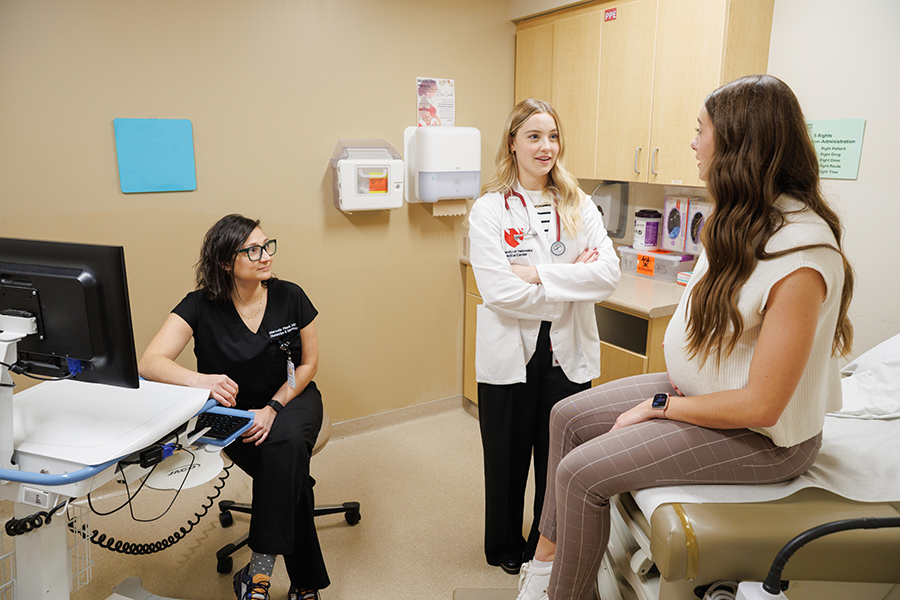Outpatient Clinic Rotation

Dr. Marcela Pineda and medical student with a simulated patient in the Olson Center for Women's Health clinic.
During the two-week clinic rotation, students will learn about outpatient care of pregnant and non-pregnant female patients, including gender care. Students will be assigned five to six days in the clinics. Every attempt will be made to make sure all students have some exposure to both outpatient gynecology and obstetric patients. Clinic advisors are aware of the clinical block objectives, knowledge, and skills expectations, and recommended directed studying assignments, which will help guide students into fulfilling these goals.
During the clerkship, students will become familiar with the following topics:
Obstetrics:
Prenatal care in the low-risk patient
- New OB visit, schedule of testing, and clinic visits
- Weight gain recommendations
- Prenatal diagnosis
- Counseling regarding vaginal birth after cesarean section
Gynecology:
- Contraception and sterilization
- Spontaneous and induced abortions
- Medical and surgical alternatives to hysterectomy
- Care of the aging female patient
- Hormone replacement therapy
- Annual exam recommendations by different age groups
- Sexually transmitted infection counseling, testing, and treatment
- Triage of abnormal Pap smears
- Abnormal uterine bleeding
- Vulvar diseases
- Minor clinic procedures: intrauterine device placement, pessary fitting and cleaning, biopsies of vulva, cervix, and uterus
- Counseling on genetic testing
Knowledge and Skills Expectations:
By the end of the clinical rotation, students will be expected to competently
- Conduct a normal annual gynecological examination: obtain and present history, under supervision do an appropriate physical exam, and counsel patient appropriately on screening recommended by age group.
- Conduct a new and return obstetric patient clinic visit (exam with the supervision of faculty or resident).
- Discuss appropriate triage of abnormal Pap smears.
- Discuss indications for vulvar biopsy and endometrial biopsy.
- Appropriately counsel patients on choices of contraception/sterilization.
- Discuss issues related to the risks and benefits of hormone replacement therapy.